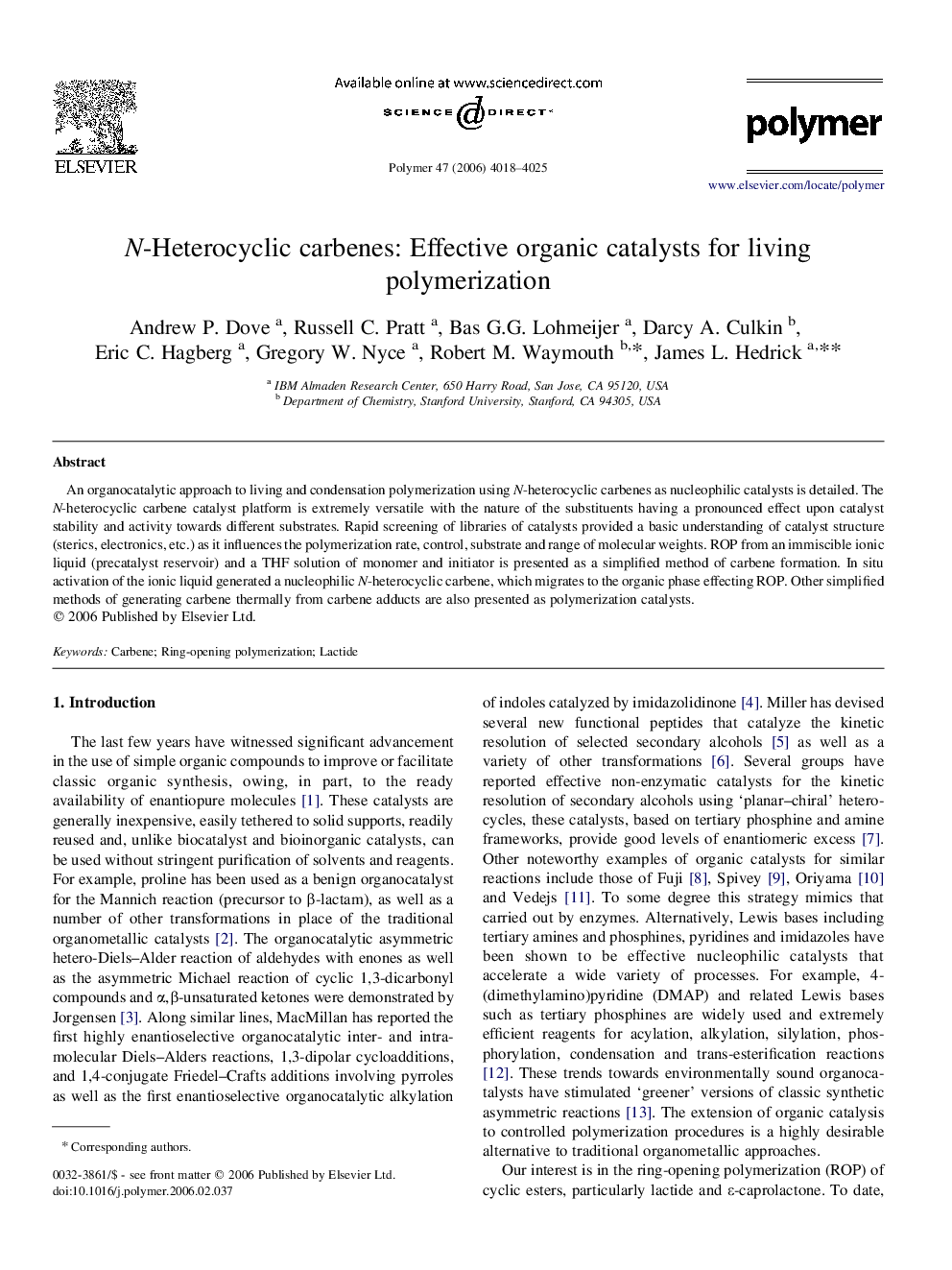| Article ID | Journal | Published Year | Pages | File Type |
|---|---|---|---|---|
| 5190061 | Polymer | 2006 | 8 Pages |
Abstract
An organocatalytic approach to living and condensation polymerization using N-heterocyclic carbenes as nucleophilic catalysts is detailed. The N-heterocyclic carbene catalyst platform is extremely versatile with the nature of the substituents having a pronounced effect upon catalyst stability and activity towards different substrates. Rapid screening of libraries of catalysts provided a basic understanding of catalyst structure (sterics, electronics, etc.) as it influences the polymerization rate, control, substrate and range of molecular weights. ROP from an immiscible ionic liquid (precatalyst reservoir) and a THF solution of monomer and initiator is presented as a simplified method of carbene formation. In situ activation of the ionic liquid generated a nucleophilic N-heterocyclic carbene, which migrates to the organic phase effecting ROP. Other simplified methods of generating carbene thermally from carbene adducts are also presented as polymerization catalysts.
Related Topics
Physical Sciences and Engineering
Chemistry
Organic Chemistry
Authors
Andrew P. Dove, Russell C. Pratt, Bas G.G. Lohmeijer, Darcy A. Culkin, Eric C. Hagberg, Gregory W. Nyce, Robert M. Waymouth, James L. Hedrick,
